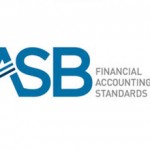FASB Seeks to Simplify Accounting Rules

With an eye on simplification, the Financial Accounting Standards Board has taken up a few short-term projects to cut some unnecessarily complexity out of accounting rules and finalized new rules for development-stage entities.
FASB recently decided based on constituent input that it can make some quick improvements to Generally Accepted Accounting Principles by simplifying the measurement of inventory and eliminating extraordinary items from the income statement. The board added a short-term project to allow inventory to be measured at the lower of cost or net realizable value rather than requiring companies to go through a more complex formula to measure inventory. Today companies must consider net realizable value along with replacement cost and net realizable value minus normal profit margin when measuring the value of inventory.
With respect to the income statement, FASB says the board tentatively decided to remove the extraordinary items concept from GAAP, which would eliminate the requirement to evaluate whether an event or transaction is an extraordinary item, and then separately disclose and present it if so. “We have received many suggestions from stakeholders highlighting areas in GAAP where simplification might be achievable,” said FASB Chairman Russ Golden in a statement. “We believe we could reduce cost and complexity in many of those areas and will work to prioritize the opportunities.” Golden said those two projects represent only the beginning of a larger initiative to improve and simplify accounting rules.
Separately, FASB approved Accounting Standards Update No. 2014-10 in an effort to reduce the overall cost and complexity of financial reporting for development stage companies without reducing the relevant information that’s made available to their investors. FASB said the new standard relieves such companies of presenting all the same basic financial statements as traditional operating companies when some of the information is not relevant to their operation.
A development-stage company is one where the product the company hopes to sell is still in development, or perhaps is in production but is not yet generating significant revenue. It’s a common scenario for pharmaceutical or high-tech companies, for example, where product development can take years before a product is marketable. The new accounting standard removes incremental financial reporting requirements for such companies, simplifies consolidation rules, and adds disclosure examples that would help explain risks and uncertainties around the company.
The new standard not only simplifies the accounting guidance, but also provides more opportunities for cost savings for preparers, said Golden. “The update should also help foster more consistent consolidation analyses and decisions among public and private development stage entities,” he said.
Source: complianceweek




























